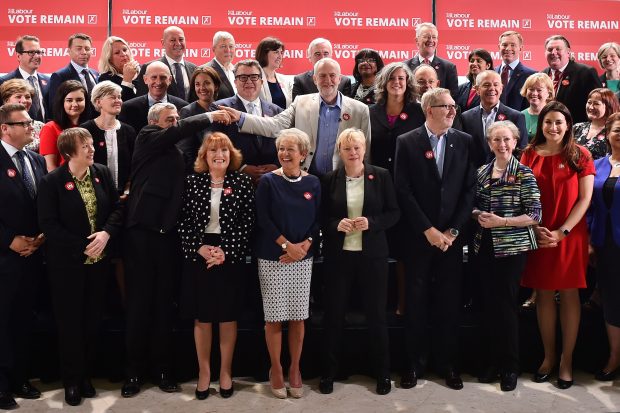By the time Labour party conference begins on Sunday in Liverpool, the party will have announced its new leader. And it is likely to be its old leader, Jeremy Corbyn. For those who have nailed their colours to Owen Smith’s mast, it is quickly becoming clear that Corbyn is about to consolidate power. As a result, there will need to be a mass rethinking of the anti-Corbyn strategy.
Most analysis of Theresa May’s decision to fight for grammar schools has focused on the internal politics of the Conservative party, but the debate has also inadvertently played into Jeremy Corbyn’s hands. Finally, after more than a year in the job, Corbyn has a domestic policy that he actually cares about. Until now, he has struggled to get fired up about issues that don’t involve the Middle East, the Falklands or Northern Ireland. Selective education undoubtedly gets his engine going; indeed, he separated from his wife Claudia Bracchita over the matter. She said that her decision to send their son to a grammar school ‘played an important role in bringing about a regrettable marital break-up.’
In his first PMQs debating this issue, Corbyn gave his best performance yet, even earning plaudits from The Spectator. Labour MPs, including some from the 80 per cent who are currently in open rebellion against him, applauded his performance. Lucy Powell called it an ‘easy win’. Mary Creagh saw May ‘floundering’. Lillian Greenwood said Corbyn was ‘right to press May hard’ on the issue, and Wes Streeting observed that the Prime Minister was ‘on the ropes…against six evidence-led questions’.
This is as close to a show of parliamentary approval as Corbyn has received during his tenure as Leader of the Opposition. And it’s no coincidence that it should arrive this week. On Wednesday, polls close for the Labour leadership, so the drive behind Owen Smith’s campaign will dry up. While polling on elections and referendums has been shaky of late, which perhaps explains why Smith’s team are still refusing to concede that the race is anything less than neck-and-neck, it is worth remembering that in the 2015 leadership race there was little doubt that Corbyn would triumph. Now, ahead of Saturday’s announcement, there is equally scant uncertainty.
Indeed, fourteen Labour MPs who quit Corbyn’s frontbench in June have already told the BBC that they are open to a return to the Shadow Cabinet, should Corbyn reclaim the leadership. In a Panorama documentary due to air on Monday evening, Unite General Secretary Len McCluskey supports the prospect of deselection for MPs who quit Corbyn’s cabinet, telling John Piennar ‘they should be held to account’. It is hardly a surprise then that, with tail firmly between legs, former shadow sports minister Clive Efford has told the Today programme that he had spoken to party members who felt ‘that we never really respected the vote that was given by party members’ and that ‘they want to see the party back as an effective opposition, so if there’s a role for me in that, I would consider it’.
It now looks likely that a thawing of relations will soon begin between Corbyn’s team and some of the rebel MPs. If Corbyn increases his mandate among Labour members, which he looks set to do, there must be a concerted effort to stabilise the party. The boundary review means that a number of prominent Labour MPs will now face difficult defences of their constituencies in 2020, while others have unwittingly been pulled into safe seats. The energy required to organise an opposition has already been expended. The grammar schools debate, which will rage on for some time, has given Corbyn a signature policy around which to rally support; and it has also given the Labour rebels a means of backtracking on their previous animosity.
Now that the #SavingLabour campaign has run its course and the rebels will, at the very least, have to wait until next summer for another coup, a tactical rethink is in the offing. By next year, 2020 will not be looking quite so far away, and there are few viable leadership candidates who would, at that point, be willing to take on the task of leading the Labour party into a potentially disastrous election. We can already see the roots of the uneasy alliance that is forming within Labour, and which will likely carry Corbyn through to the election.







Comments